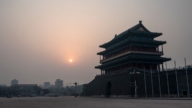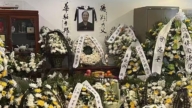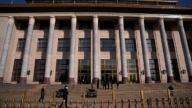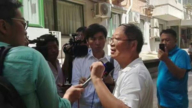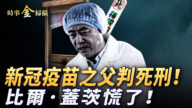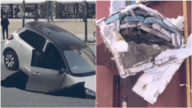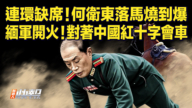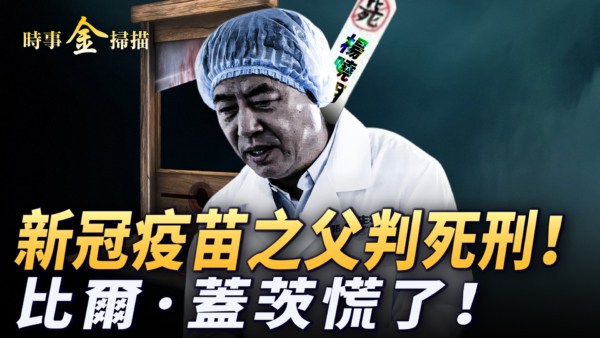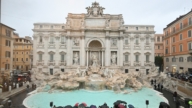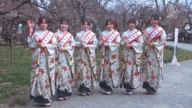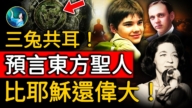【新唐人2013年01月02日讯】新年伊始,中共新任总书记习近平再次强调“八项规定”,并指责个别高官,这一系列举动,有什么用意?让我们来看看专家的分析。
中共喉舌《新华网》在2012年最后一天深夜发出消息说,习近平主持了政治局部署2013年反腐工作。他强调,“把监督执行八项规定作为经常性工作,制定监督检查办法和纪律处分规定,强化日常监督,做到出实招、动真格、见实效。”
时事评论家文昭指出,这个会议可以看出,习近平在传递一个意图。
时事评论家文昭:“从他这个讲话所传递出的一个意图,是要把习八条,这八条规定,想要把它作为反腐效应,把它长期化。通过推进八项规定,去进行所谓的反腐。”
习近平还谈到,新形势下,反腐斗争形势依然严峻,一些领域消极、腐败现象易发、多发,个别领导干部特别是高级干部严重违纪违法。
中共“十八大”后,习近平高调反腐,四川省委原副书记、中央候补委员李春城首先被“双规”。
《太阳报》分析,李春城被迅速拿下,表明中共高层中,保李春城的人已经“下岗”,因此,李春城案是否会挖出更大的人物,值得关注。
有消息说,李春城与周永康家族关系密切。自从1999年周永康到四川任省委书记后,李春城就攀上周永康,成为周的嫡系人马。此后,李春城对周永康家族在四川大开绿灯,他成了周永康和周的儿子在生意场上的最大帮手。
据了解,周永康儿子在四川投资石油、地产以及四川信托有限公司等商业,李春城一路开绿灯,让周家人在四川投资2亿元,就窃取了70亿的国有资产。此外,习近平上位不久,北京律师李庄也曝光了中共体制内的司法黑幕、贪污腐败。
面对民怨四起、内外交困的困局,近期习近平高调反腐、同时官媒罕见的大量披露薄熙来在重庆唱红打黑的黑幕,外界认为,这都是习近平重判薄熙来的信号。
不过,30号发表在《Real Clear Politics》的文章指出,2013年,世界上最难的职位,应该是,中共中央政治局常委、中央纪律检查委员会书记王岐山的工作,因为王岐山刚刚担任的“反腐”项目,几乎是不可能实现的任务。
据了解,目前一些官员人心惶惶,纷纷把资产脱手或转移国外。
海外媒体报导,来自北京政法委一位副部级官员的消息,目前各地官员都在考虑把手中的固定资产脱手,并加快资产转移海外的步伐。此外,《财经网》报导,中国即将出现新一轮官员对外财产转移潮。这一轮财产转移潮,在房地产资产上有独特的表现。
另据公安出入境处的消息显示,很多官员以旅游、探亲为名申请出国。
文昭:“他(习近平)把习李新政集中在反腐这个领域,他希望在反腐这个领域,能够拿出一点跟前任不一样的做法,从而给民众留下一个深刻的印象,好像能够缓和特别是在基层社会,缓和现在中国由于腐败和特权不公,所积压的这种民间的怨气。”
时事评论员任百鸣表示,江泽民上台之后,有一个很大的特点,就是用金钱去诱惑官员为他卖命。
时事评论员任百鸣:“大家都贪,大家都安全,所以现在的腐败,它不是什么个别问题,它是从上到下的,整个中共体制当中,已经就像一个癌症的扩散这种蔓延,无药可治,那么在这种情况下,当然是最难的问题了,谁能治愈癌症,现在谁也治愈不了。”
任百鸣还指出,习近平现在面临这批贪官,又希望这些贪官反腐,在这种矛盾的情况下,就会演变成互相打压、拆台,最终导致中共解体。
采访编辑/常春 后制/薛莉
Behind Xi Jinping’s Eight Regulations and Firing of Officials
At the beginning of New Year, the new Chinese Communist
Party (CCP) general secretary Xi Jinping once again
emphasized his new Eight Regulations and denounced some
high officials—but what’s the purpose behind his actions?
Let’s take a look at some expert analyses.
CCP mouthpiece, Xinhua Net said on December 31, 2012
that Xi had chaired the CCP politburo meeting
to deploy work against corruption in 2013.
Xi emphasized the implementation of his Eight Regulations
as regular work to develop methods of supervision, inspection
and discipline, strengthening the day-to-day surveillance,
while stressing a serious attitude to gain “real results".
Political commentator Wen Zhao points out that,
Xi had communicated a strong intention through the meeting.
[Wen Zhao]: “Xi’s speech shows his intention that
he wants to insist in his Eight Regulations as a long-term anti-corruption tool;
to pursue anti-corruption by promoting his regulations.”
Xi says, the anti-corruption battle is still in its beginning stage
and especially ripe is serious corruption among senior leaders.
After the 18th Party congress Xi advocated against
corruption in high-profile.
Former Sichuan Provincial Party Committee deputy secretary
and Central Committee alternate, Li Chuncheng, was detained and interrogated.
The Sun newspaper analyzed that Li’s quick dismissal showed
that the senior leadership protecting him had lost power.
In that instance, whether Li’s case would incriminate other
senior officials becomes a concern.
Some suggest Li is linked with Zhou Yongkang’s family—
after being dismissed as Sichuan Provincial Party secretary,
Zhou had colluded with Li, making Li his faithful minion.
Later, Li had become the top business assistant of
Zhou’s son in Sichuan Province.
It’s well known that Zhou’s son invested in oil, real estate,
and the Sichuan Funds Trust Limited Company.
Li helped Zhou’s family to invest 200-million yuan
in Sichuan Province to gain 700-million in state-owned assets.
Also, shortly after Xi gained power, Beijing attorney
Li Zhuang exposed cases of judicial scandals and corruption in the CCP system.
Facing strong grievances, Xi advocated in high-profile against
corruption, and official media unusually exposed Bo Xilai’s
scandals from his time in Chongqing, in a large number.
Outsiders say it sent an important signal that
Xi would heavily sentence Bo.
An article issued in Real Clear Politics asked,
‘What’s the world’s most difficult work position in 2013?’
It may be the role of the CCP Politburo Standing Committee’s
secretary of Central Commission for Discipline Inspection.
It’s now chaired by Wang Qishan—the anti-corruption project
he’s just taken over has hardly made it off the ground.
It’s known that now some officials are so scared that they are
selling or transferring their assets abroad one after another.
Overseas media reported a message from the deputy minister
of Beijing’s Politics and Law Committee, saying that,
now officials in different areas are considering selling
their assets and are hastily transferring their assets abroad.
The Financial Network also reported that, China is seeing
a new shift regarding officials transferring their assets abroad,
and there will likely emerge special behavior
in dealing with real estate.
According to police immigration news, many officials have
applied to travel abroad as a tourist or to visit relatives.
[Wen Zhao]: “Xi is focusing on and
has set his hopes in anti-corruption;
he can take up some different method from his predecessors
and is trying to give a good impression to the public.
Li hopes to relax the basic social grievances
produced by corruption and inequality.”
Political commentator Ren Baiming says,
since Jiang Zemin took power,
there has immerged a major characteristic within
Chinese officialdom—
the use of bribery to get things done—
as Jiang had used money to bribe officers to work for him.
[Ren Baiming]: “All officers are corrupt and
all are concerned with safety,
so corruption is not a problem of only some individuals,
but resides in the CCP from top to bottom.
The CCP system is like a malignant tumor
—no medicine can cure it.
In this case, of course corruption is the most difficult problem
and no one can solve it.”
Ren also points out that, in facing these corrupt officials,
Xi is hoping to turn them against corruption.
The CCP’s anti-corruption movement is full of
suppression and infighting,
because every official is watching out for his own interests
and all hold evidence against one another;
in the end, it will inevitably lead to the CCP’s disintegration.



